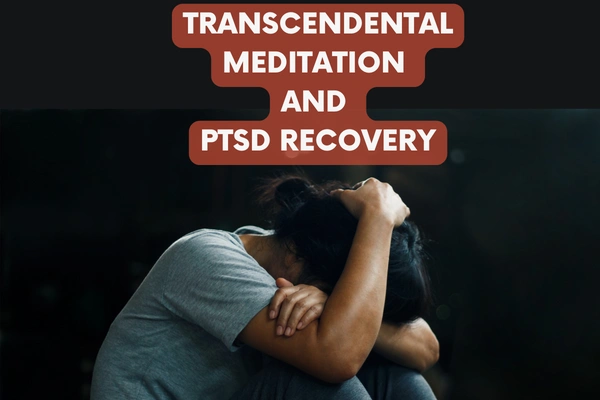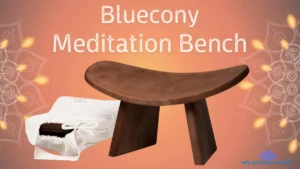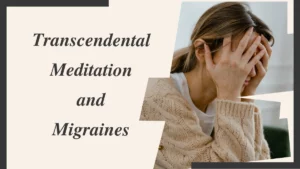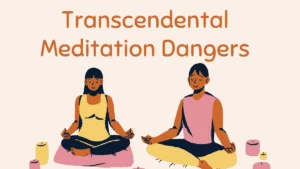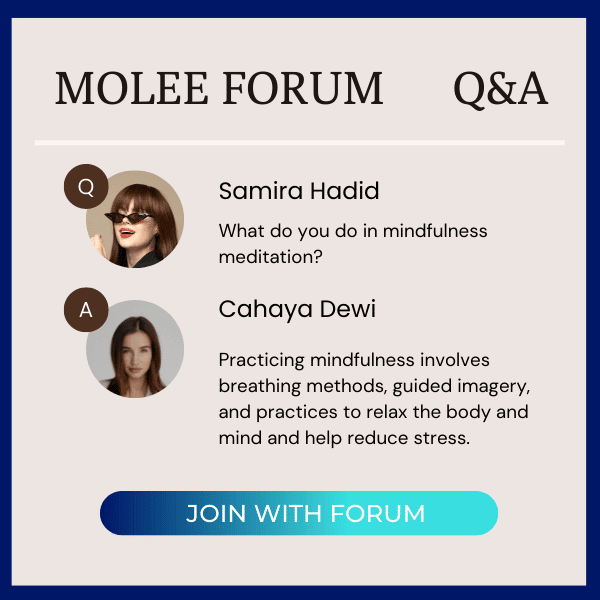Table of Contents
- Understanding PTSD and Its Symptoms
- Transcendental Meditation as a Treatment for PTSD
- Meditation Techniques and PTSD
- Recognizing and Understanding PTSD in Individuals
- Five Key Studies Explore the Impact of Transcendental Meditation and PTSD
- 1. Non-trauma-focused meditation versus exposure therapy in veterans with post-traumatic stress disorder: a randomized controlled trial
- 2. A Pilot Randomized Controlled Trial of Transcendental Meditation as Treatment for Post-traumatic Stress Disorder in Veterans
- 3. Effects of Transcendental Meditation in Veterans of Operation Enduring Freedom and Operation Iraqi Freedom With Post-traumatic Stress Disorder: A Pilot Study
- 4. Significant reductions in post-traumatic stress symptoms in Congolese refugees within 10 days of Transcendental Meditation practice.
- 5. Reduction of PTSD in South African University Students Using Transcendental Meditation Practice
- Final Thoughts
- FAQs on Transcendental Meditation and PTSD
Sometimes, long after a scary or sad event, the stress doesn’t go away. This lingering stress is known as PTSD, and it can make you feel stuck with your bad memories.
But what if you could find peace without having to relive those tough times?
That’s where transcendental meditation comes in – a simple, quiet way of meditation that might just be the key to unlocking a calmer you.
If you’re searching for a gentle escape from the noise of past traumas, you’re in the right place. Let’s explore the connection between transcendental meditation and PTSD recovery to help quiet the mind and restore control and calm.
Understanding PTSD and Its Symptoms
PTSD isn’t just a soldier’s battle; it’s a reality for many who’ve faced trauma. Picture PTSD as a shadow that follows some people after an awful day, one that doesn’t fade when the sun sets.
It’s more common than you might think, touching lives quietly but deeply.
Read our full article on Transcendental Meditation and OCD Management
What are the 20 core PTSD symptoms?
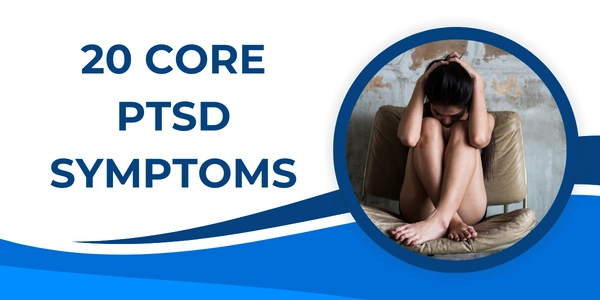
The 20 core symptoms of Post-Traumatic Stress Disorder (PTSD) can be broadly categorized into four types: intrusive memories, avoidance, negative changes in thinking and mood, and changes in physical and emotional reactions.
Read our full article on Transcendental Meditation and OCD Management
Let’s break down the symptoms.
Intrusive Memories:
- Recurrent, unwanted distressing memories of the traumatic event
- Reliving the traumatic event as if it were happening again (flashbacks)
- Upsetting dreams or nightmares about the traumatic event
- Severe emotional distress or physical reactions to something that reminds you of the traumatic event
Avoidance:
- Trying to avoid thinking or talking about the traumatic event
- Avoiding places, activities, or people that remind you of the traumatic event
Negative Changes in Thinking and Mood:
- Negative feelings about yourself or other people
- Inability to experience positive emotions
- Feeling emotionally numb
- Lack of interest in activities you once enjoyed
- Hopelessness about the future
- Memory problems, including not remembering important aspects of the traumatic event
- Difficulty maintaining close relationships
Changes in Physical and Emotional Reactions:
- Being easily startled or frightened
- Always being on guard for danger
- Self-destructive behavior, such as drinking too much or driving too fast
- Trouble sleeping
- Trouble concentrating
- Irritability, angry outbursts, or aggressive behavior
- Overwhelming guilt or shame
It’s important to note that PTSD symptoms can vary over time or vary from person to person.
What are the 5 levels of PTSD?
These symptoms stack up in levels, kind of like floors in a building:
- First Floor: Mild – Life’s rocky, but you’re keeping on.
- Second Floor: Moderate – It’s tougher, like walking against the wind.
- Third Floor: Severe – Daily tasks feel like climbing a mountain.
- Fourth Floor: Profound – It’s like shouting into a storm and not being heard.
- Fifth Floor: Extreme – The storm’s so loud, it’s all you can hear.
And overthinking?
It’s like your brain’s stuck in a loop, playing the ‘what ifs’ and ‘if onlys’ on repeat. Yep, it’s part of the PTSD puzzle, making it hard to break free from the cycle. Recognizing these signs is like finding the map to navigate out of the storm.
Overthinking and PTSD: Is it a symptom?
Have you ever found yourself stuck on a thought like a song on repeat?
That’s overthinking. With PTSD, it’s like your brain won’t change the track. It’s a real symptom, and it can be tough.
What are the six stages of PTSD?
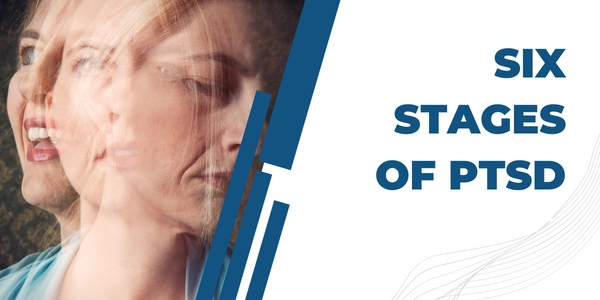
Let’s explore the six stages of PTSD recovery. Recovery from PTSD is a journey with steps, each one a stage towards feeling better.
- Emergency Stage: This is the storm after the trauma. Everything feels raw and scary.
- Denial Stage: Here, you might try to act like everything’s okay, even when it’s not.
- Short-term Recovery Stage: You start to deal with what happened. It’s like cleaning up after the storm.
- Long-term Recovery Stage: This is where the real healing happens. You’re rebuilding after the cleanup.
- Integration Stage: Now, you’re putting the pieces back together. It’s finding a new normal.
- Renewal Stage: Finally, you come out stronger. The trauma’s not forgotten, but you’re back in control.
Each step forward is a victory. It’s not a race; it’s more like a walk through a new park, finding your way, one step at a time.
Transcendental Meditation as a Treatment for PTSD
Transcendental meditation is like a quiet space in your day. Twice a day, you sit and repeat a special word, a mantra, in your mind. It’s a break from the chaos, a chance for your mind to rest.
For those with PTSD, it’s like a daily dose of peace. It helps quiet the noise of troubling thoughts. It’s a way to face the day with a calmer spirit.
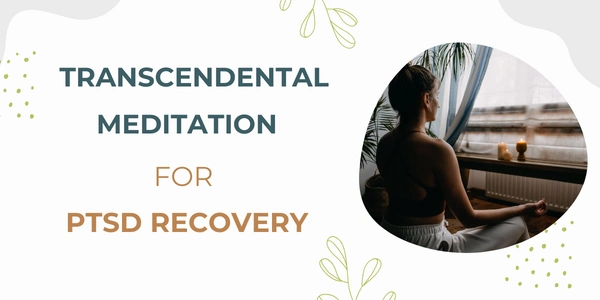
Studies, like those by Nidich and colleagues, show it works. They found that people felt better after meditating. Less stress, more smiles.
Comparing Treatments: Transcendental Meditation vs. Exposure Therapy
Now, let’s look at two paths to healing. Transcendental meditation is one, exposure therapy is another. Exposure therapy is like facing your fears head-on, with a guide.
Recent studies put them side by side. They found both can help but in different ways. Some people like the gentle approach of meditation. Others find facing their fears directly works faster.
It’s like choosing between walking or taking the bus. Both get you there; you just pick the way that suits you best.
Meditation Techniques and PTSD
You are wondering which meditation can help with PTSD. Think of transcendental meditation as a quiet friend. It’s simple. You sit, breathe, and repeat a mantra. It helps calm the storm in your mind.
Should you try it if you have PTSD?
Absolutely. It’s like finding a calm port in a stormy sea. The benefits? More peace, less stress.
Exercises and Strategies Beyond Meditation for PTSD
Meditation isn’t the only tool. Your body needs to move to heal. Think of gentle yoga or walking. They’re like soft music for your muscles and mind.
And strategies? Picture a toolbox. In it, you’ve got:
– Writing your thoughts down. It’s like talking to paper.
– Talking to someone who gets it. It’s sharing the load.
– Learning to say “no” to stress. It’s like setting up a fence for your well-being.
These aren’t just tools; they’re lifelines. Throw them into your daily routine, and watch the waves of PTSD get smaller.
Recognizing and Understanding PTSD in Individuals

How can you spot PTSD in someone?
Look for the signs. They might jump at loud noises or want to be alone a lot. They might seem sad or angry more than usual. It’s like they’re carrying a heavy backpack that you can’t see.
How do PTSD people behave?
People with PTSD might act differently. They might stay away from crowds or not enjoy things they used to love. It’s as if they’re walking on a different path than before.
The Fastest Ways to Treat PTSD
What’s the quickest way to help PTSD?
There’s no single answer, but some paths are faster than others. Think of it like a race where some lanes are smoother.
– Talking to a therapist can be a shortcut to healing.
– Medicines might speed up the journey for some.
– For others, meditation is like a fast-moving train towards calm.
Each person’s race is different. The fastest lane for one might not be the same for another. It’s about finding the right track for you.
Is overthinking a symptom of PTSD?
Yes, overthinking can be a symptom of PTSD. Individuals with PTSD often experience intrusive thoughts and persistent worrying, which can manifest as overthinking.
This is typically a response to the trauma they have experienced, as their mind tries to make sense of the event and prevent future harm. Overthinking in PTSD can lead to heightened anxiety, difficulty concentrating, and disrupted sleep patterns.
Five Key Studies Explore the Impact of Transcendental Meditation and PTSD
In recent years, Transcendental Meditation (TM) has emerged as a promising approach to managing Post-Traumatic Stress Disorder (PTSD).
In this section, we delve into five pivotal research studies that explore the effectiveness of TM in alleviating PTSD symptoms.

Image Source : Info-graphic taken from the Norman E. Rosenthal M.D web site.
By examining diverse contexts and methodologies, we aim to provide a comprehensive overview of how TM can be a transformative tool in PTSD treatment.
1. Non-trauma-focused meditation versus exposure therapy in veterans with post-traumatic stress disorder: a randomized controlled trial
The study [1] compares Transcendental Meditation (TM), a non-trauma-focused treatment, with prolonged exposure therapy (PE) and PTSD health education (HE) in veterans with PTSD. It aims to determine if TM is non-inferior to PE in reducing PTSD symptoms.
PTSD is prevalent among 10-20% of military veterans. PE, a trauma-focused treatment, has limitations, including high dropout rates and low efficacy for some patients. Non-trauma-focused treatments like TM could be alternatives for those who do not respond to or cannot tolerate PE.
203 veterans with PTSD were randomly assigned to TM, PE, or HE groups. Each treatment consisted of 12 sessions over 12 weeks, with TM and HE mainly in group settings and PE individually. The primary outcome was the change in PTSD symptom severity assessed by the Clinician-Administered PTSD Scale (CAPS).
TM was significantly non-inferior to PE in improving CAPS scores. TM and PE both showed significant reductions in CAPS scores compared to HE. 61% of TM recipients, 42% of PE, and 32% of HE showed clinically significant improvements.
TM might be a viable non-trauma-focused therapy for reducing PTSD symptoms in veterans, offering an alternative for those preferring not to receive or not responding to traditional exposure-based treatments.
2. A Pilot Randomized Controlled Trial of Transcendental Meditation as Treatment for Post-traumatic Stress Disorder in Veterans
This study [2] examines the efficacy of Transcendental Meditation (TM) as a treatment for Post-traumatic Stress Disorder (PTSD) in veterans through a pilot randomized controlled trial.
It aims to extend previous research by comparing TM with treatment-as-usual (TAU) for PTSD symptoms and associated conditions like depression and anxiety.
PTSD prevalence is notably higher among veterans compared to civilians, with associated conditions like depression, anxiety, and long-term health risks.
While trauma-focused treatments like Prolonged Exposure (PE) and Cognitive Processing Therapy (CPT) are established, there’s a growing interest in alternative treatments like TM due to various limitations of conventional therapies.
Forty U.S. veterans diagnosed with PTSD were randomized into TM or TAU groups.
The TM group underwent 16 sessions over 12 weeks, including individual and group formats, while continuing usual care.
The TM group showed a significant reduction in PTSD symptoms compared to the TAU group, with 50% of the TM group no longer meeting PTSD diagnostic criteria post-treatment.
There were also significant reductions in self-reported symptoms of PTSD, depression, anxiety, and sleep difficulties in the TM group.
TM demonstrated efficacy as a treatment for veterans with PTSD and could be considered a tolerable, non-trauma-focused alternative to traditional treatments.
3. Effects of Transcendental Meditation in Veterans of Operation Enduring Freedom and Operation Iraqi Freedom With Post-traumatic Stress Disorder: A Pilot Study
The study [3] investigates the effects of Transcendental Meditation (TM) on veterans from Operation Enduring Freedom or Operation Iraqi Freedom with combat-related posttraumatic stress disorder (PTSD).
The pilot study involved five veterans who practiced TM and were followed for 12 weeks. All subjects showed improvement in PTSD symptoms and quality of life.
The study suggests that TM may be a beneficial treatment for PTSD in veterans, warranting further research.
Interested in Reading Full Article on TM and PTSD by David Lynch Foundation , Click Here >>The research explores the potential of Transcendental Meditation (TM) as a treatment for PTSD in veterans of recent military operations, given the high incidence of PTSD and the need for accessible, non-stigmatizing treatments.
PTSD is a significant issue among veterans, with substantial societal costs. Existing treatments are limited, and many veterans do not seek help due to stigma and other barriers. TM offers a non-stigmatizing, easily accessible intervention that could counteract the heightened arousal associated with PTSD.
The study was approved by an Institutional Review Board, and subjects were recruited via media. Eligible veterans with combat-related PTSD were taught TM and asked to practice it twice daily for 12 weeks. Compliance and experiences were monitored through regular checks.
All subjects improved on the Clinician Administered PTSD Scale (mean change score, 31.4; p = 0.02).
Improvements were also noted in the Quality of Life Enjoyment and Satisfaction Questionnaire (mean change score, -13.00; p < 0.01).
The PTSD Checklist—Military Version showed improvement (mean change score, 24.00; p < 0.02).
Subjects reported feeling calmer, less stressed, and less anxious, with some noting better sleep and increased engagement in daily life.
The pilot study indicates that TM may help alleviate symptoms of PTSD and improve quality of life in veterans with combat-related PTSD. The findings support the need for larger, controlled studies to further evaluate TM’s efficacy.
4. Significant reductions in post-traumatic stress symptoms in Congolese refugees within 10 days of Transcendental Meditation practice.
The study [4] investigated the impact of Transcendental Meditation (TM) on reducing post-traumatic stress symptoms in Congolese refugees. Within 10 days of practicing TM, participants showed a significant decrease in symptoms, with further improvements after 30 days.
The study suggests TM as a potential treatment for posttraumatic stress, especially in environments where mental health services are scarce.
The research explored the efficacy of Transcendental Meditation (TM) in alleviating posttraumatic stress symptoms among Congolese refugees within a short span of 10 days.
Refugees often face extreme stress that can lead to posttraumatic stress. Prior studies have indicated that TM might help reduce such symptoms by promoting stable inner peace and improved emotional regulation.
Eleven Congolese refugees were taught TM and assessed using the Posttraumatic Stress Disorder Checklist–Civilian (PCL-C) at baseline, then 10 and 30 days post-instruction. The study measured the change in PCL-C scores to evaluate the impact of TM.
Baseline PCL-C scores averaged 77.9.
After 10 days of TM practice, scores dropped by 29.9 points to an average of 48.0.
After 30 days, scores further decreased by 12.7 points to an average of 35.3.
The effect size of TM practice on symptom reduction was high (d = 4.05).
TM practice led to a rapid and significant reduction in posttraumatic stress symptoms among Congolese refugees, suggesting it is a viable treatment method, particularly in resource-limited settings.
5. Reduction of PTSD in South African University Students Using Transcendental Meditation Practice
The study [5] investigated the impact of Transcendental Meditation (TM) on PTSD symptoms in South African university students. It involved 34 students diagnosed with PTSD at an experimental university practicing TM twice daily, compared to 34 students at a comparison university.
The results showed significant reductions in PTSD symptomatology and depression, particularly with regular practice, suggesting TM as a potential educational treatment for PTSD in higher education settings.
The research explores the effectiveness of Transcendental Meditation (TM) in reducing PTSD symptoms among South African university students exposed to high levels of trauma.
South African youth experience high levels of traumatic events, leading to significant PTSD and depression rates. This study proposes TM as a potential widespread solution to alleviate PTSD and depressive symptoms without a network of counselors.
The study conducted a pilot followed by a primary study comparing TM practice in PTSD-diagnosed students at an experimental university with a control group at another university. Clinicians confirmed the diagnosis and PTSD and depression levels were measured over time.
Baseline PTSD Checklist—Civilian (PCL-C) scores: TM group 53.3, comparison group 57.0.
At 15 days: TM group 39.1, comparison group 54.1.
At 60 days: TM group 36.2, comparison group 55.9.
At 105 days: TM group 32.0, comparison group 56.9.
Baseline Beck Depression Inventory (BDI) scores: TM group 19.9, comparison group 16.9.
At 60 days: TM group 9.5, comparison group 16.3.
At 105 days: TM group 7.4, comparison group 17.3.
The study concludes that regular TM practice significantly reduces PTSD symptoms and depression in university students, offering an alternative educational treatment for PTSD in higher education.
The results section includes numerical data showing the decrease in PTSD and depression scores over time, indicating the effectiveness of TM practice. The study’s findings support TM as a beneficial practice for students with PTSD, with implications for its use in educational settings.
References :
- Nidich S, Mills PJ, Rainforth M, Heppner P, Schneider RH, Rosenthal NE, Salerno J, Gaylord-King C, Rutledge T. Non-trauma-focused meditation versus exposure therapy in veterans with post-traumatic stress disorder: a randomized controlled trial. Lancet Psychiatry. 2018 Dec;5(12):975-986. doi: 10.1016/S2215-0366(18)30384-5. Epub 2018 Nov 15. PMID: 30449712.
- Bellehsen, M., Stoycheva, V., Cohen, B.H., & Nidich, S. (2021). A Pilot Randomized Controlled Trial of Transcendental Meditation as Treatment for Posttraumatic Stress Disorder in Veterans. Journal of traumatic stress.
- Joshua Z. Rosenthal , MD * ; Sarina Grosswald , EdD † ; Richard Ross , MD, PhD ‡ ; Norman Rosenthal , MD * Effects of Transcendental Meditation in Veterans of Operation Enduring Freedom and Operation Iraqi Freedom With Posttraumatic Stress Disorder: A Pilot Study
- Rees, B., Travis, F., Shapiro, D.A., & Chant, R.M. (2014). Significant reductions in posttraumatic stress symptoms in Congolese refugees within 10 days of Transcendental Meditation practice. Journal of traumatic stress, 27 1, 112-5
- Bandy CL, Dillbeck MC, Sezibera V, et al. Reduction of PTSD in South African University Students Using Transcendental Meditation Practice. Psychological Reports. 2020 Jun;123(3):725-740. DOI: 10.1177/0033294119828036. PMID: 30777793.
Final Thoughts
As we have explored through various studies, the impact of Transcendental Meditation (TM) on Post-Traumatic Stress Disorder (PTSD) is both profound and promising. The evidence presented demonstrates that TM can significantly reduce the symptoms of PTSD, offering a non-invasive, holistic approach to healing.
Unlike traditional therapies that often focus on reliving traumatic experiences, TM provides a unique method of transcending them, fostering a sense of peace and mental clarity.
The studies reviewed reveal that TM’s benefits are not limited to short-term relief but extend to long-term mental health improvements. This includes reductions in anxiety, depression, and overall stress levels, which are commonly associated with PTSD.
Furthermore, TM’s adaptability across different populations, from war veterans to survivors of sexual assault, highlights its universal applicability.
Importantly, TM’s ease of implementation and lack of requirement for specialized equipment or settings make it a viable option even in resource-limited environments.
This accessibility is crucial in extending mental health support to diverse groups, including those in post-conflict zones or areas with limited access to traditional mental health services.
In conclusion, Transcendental Meditation emerges not just as an alternative, but as a complementary approach to existing PTSD treatments. Its ability to empower individuals in their healing journey, coupled with the growing body of supportive research, positions TM as a key player in the future landscape of PTSD treatment.
As we continue to understand and embrace the multifaceted nature of mental health, incorporating practices like TM could be instrumental in offering holistic, patient-centered care for those grappling with the aftermath of traumatic experiences.
Read our full article on Transcendental Meditation and ADHD
FAQs on Transcendental Meditation and PTSD
Which meditation is best for PTSD?
Mindfulness and Transcendental Meditation are highly effective for PTSD, offering relaxation and stress reduction.
What exercises are good for PTSD?
Gentle, mindful exercises like yoga and tai chi are beneficial for PTSD, promoting mental and physical well-being.
What coping strategies work best for PTSD?
Mindfulness, cognitive-behavioral therapy, and grounding techniques are effective coping strategies for managing PTSD symptoms.
Should people with PTSD meditate?
Yes, meditation can be beneficial for people with PTSD, helping to reduce stress and improve emotional regulation.
Can PTSD be treated by meditation?
Meditation, especially mindfulness-based practices, can significantly aid in treating PTSD by reducing stress and anxiety.
How can you tell if someone has PTSD?
Signs of PTSD include recurring flashbacks, avoidance behaviors, mood changes, and heightened reactions to triggers.


